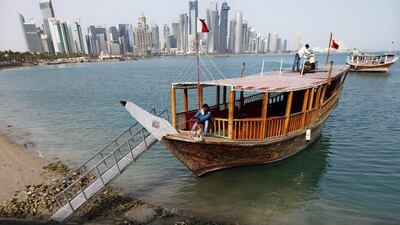DOHA // Water consumption in Qatar increased by 70 per cent in the seven years up to 2013, the first ever water statistics published by Doha revealed on Wednesday.
More than 740 million cubic metres of water were used in 2013, up from just over 437 million in 2006, reflecting the country’s rapid expansion, figures from the Ministry of Development Planning and Statistics (MDPS) show.
“Government” water consumption grew the most during that time period, increasing by almost 400 per cent, said the MDPS.
Industry use was up by more than 200 per cent, though the biggest consumers were agriculture and residential households.
Some 245 million cubic metres of water were used by residential households in 2013, up from 130 million in 2006.
In 2006, fewer than 967,000 people lived in Qatar.
By 2013, that number had risen to 2.1 million as the country embarked upon a massive transformation.
Currently, the population is around 2.5 million.
Qatar’s main source of water is desalinated seawater, which is used for drinking water, and groundwater, which is used for agriculture.
“Water is life, therefore the protection of national natural freshwater resources is part of our National Development Strategy,” said MDPS minister Saleh Al Nabit.
As well-being a scarce resource, water security forms a major component of Qatar’s “National Vision 2030”.
This is a 2008 government-launched strategy designed to help transform Qatar “into an advanced society capable of achieving sustainable development”.
The National Vision identified that “Qatar is facing major environmental challenges that need to be appropriately resolved, particularly achieving water security”.
* Agence France-Presse

